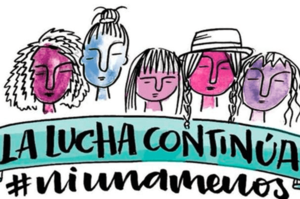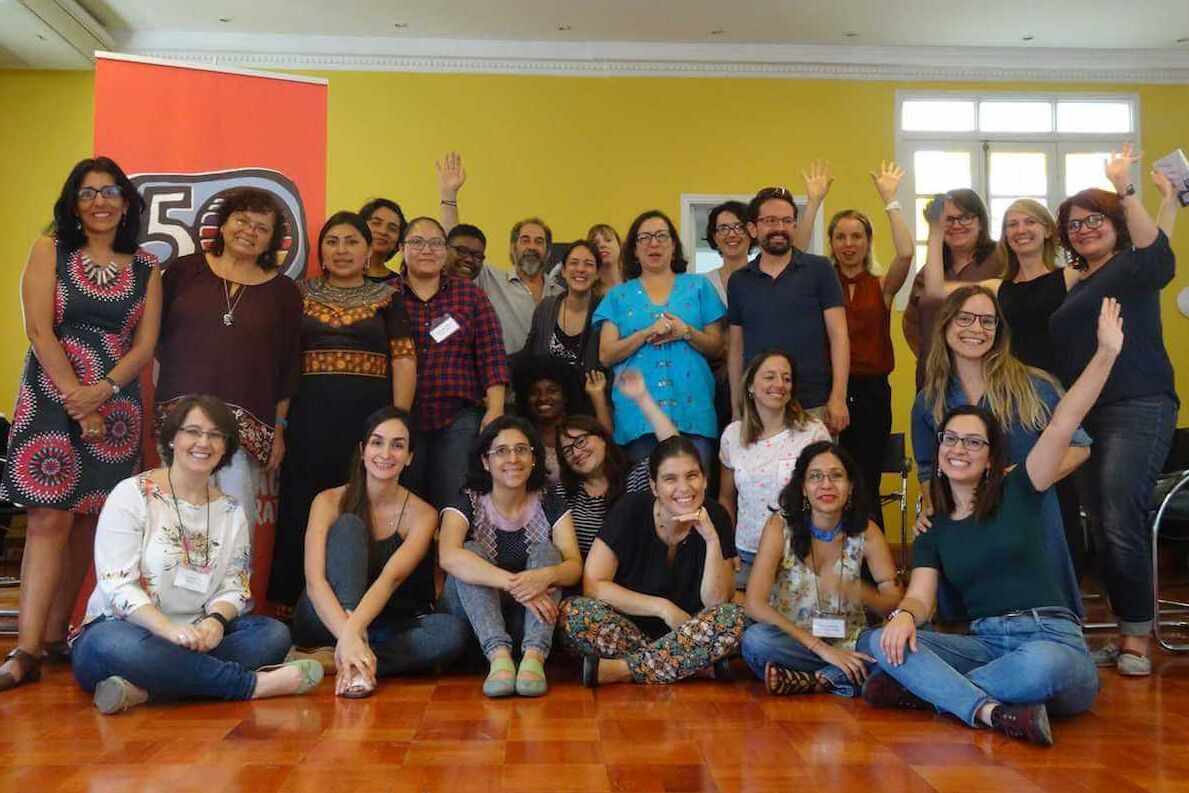Feminist politics holds the key to a post-patriarchal social order
Feminists have always been pushing the boundaries of thinking. They have been pioneers in questioning power relations, placing new issues on the social agenda and organizing for more equality, freedom and democracy. Their ideas set innovative impulses for the substantial renovation of social democracy and provide orientation to progressive parties worldwide.
In Latin America and the Caribbean, however, feminist movements are still confronted with various kinds of stereotypes. After their resistance against the military dictatorships in the 80s and their political and trade unionist struggle for re-democratization in many of the region’s countries during the 90s, today’s generation has a great variety of approaches. Post-colonial, ecological, indigenous, queer-feminist and post-neoliberal perspectives find their expression in the broad debate and are calling into question the eurocentric, white, elitist feminist discourse. Despite their variety, those emerging voices all fundamentally challenge the intersecting structures of domination of the capitalist economic and patriarchal order of society, and offer suggestions for a radical socio-ecological transformation.
Thanks to their great commitment, women in Latin America and the Caribbean have made great progress over the past three decades. Never before have so many women been employed as today and the number of highly educated women has increased significantly. Today, 30 per cent more women than men study at university in the region. They have also gained in visibility and influence in politics and society. In no other region of the world has the rate of female executives reached a comparable level. Until recently, Argentina, Brazil and Chile had female heads of state. Currently, Bolivia’s parliament has one of the highest proportions of women representatives in the world, second only to Rwanda.
"The national and international network of personal links based on care work, known as the global care chain, has mostly evolved in the informal sector, without any regulation or protection of women’s rights."
Despite these successes, the list of discriminations and cases of gender injustice is still depressingly long. The gender pay gap amounts to a tremendous 30 per cent; the female workforce is regarded as a cheap factor of production. Women carry out the majority of care duties for free or for less than their male counterparts. The national and international network of personal links based on care work, known as the global care chain, has mostly evolved in the informal sector, without any regulation or protection of women’s rights. Oppression, abuse and discrimination are some of the characteristics of the precarious conditions women tend to work in. Therefore, feminist economists of today are a key voice with respect to innovations towards a post-growth and post-liberal economic system.
But at the same time, Europe, Latin America and the Caribbean are facing a growing influence from reactionary and authoritarian forces after years of newly gained freedom, participation and social rights. Rising right-wing conservative parties and movements as well as the evangelical churches are trying to reverse the achievements in gender equality. Politics and society are turning increasingly repressive and patriarchal. This constitutes a threat to democracy, social peace and the liberal value system.
A revolution is on the horizon against this backlash, against the continuously high level of sexual violence (both physical and psychological) and the femicides in machismo-dominated Latin American societies. Feminist movements like "Ni una menos" ("not one less") demand information, state protection, feminist policies and a rethinking of society.
They question the status quo and commit themselves courageously, innovatively and efficiently to more democracy, self-determination and autonomy. What is at stake is nothing less than a cultural change towards a post-patriarchal system.
In this context, the Friedrich-Ebert-Stiftung (FES) in Latin America and the Caribbean has set itself the task to make feminist voices heard in their search for progressive solutions to 21st-Century challenges and to build bridges between the diverse feminist movements beyond national borders. While sometimes distancing themselves from one another, we aim to bring together young and well-established feminists as well as the more prominent feminist voices and grassroots activists to identify common demands and amplify their impact on policy making.
By setting up the Regional Feminist Action Group and by reinforcing feminist action in its national agenda, FES has created sustained spaces for dialogue for committed women and men and has boosted their capacity to form alliances. Workshops across the continent from 2018 to 2020 will offer the opportunity to build networks and develop politically innovative campaigns regarding the feminist criticism of capitalism, the care system and the future of work. This will enable their ideas for more gender equality in all policy fields to become more visible and their voices louder. ###
To find out more about the feminist work of FES in Latin America, visit the FES Chile coordination office on the official office website and follow them on Facebook.
About FES Connect
Connecting people, in the spirit of social democracy, we source and share content in English from the German and international network of the Friedrich-Ebert-Stiftung.








